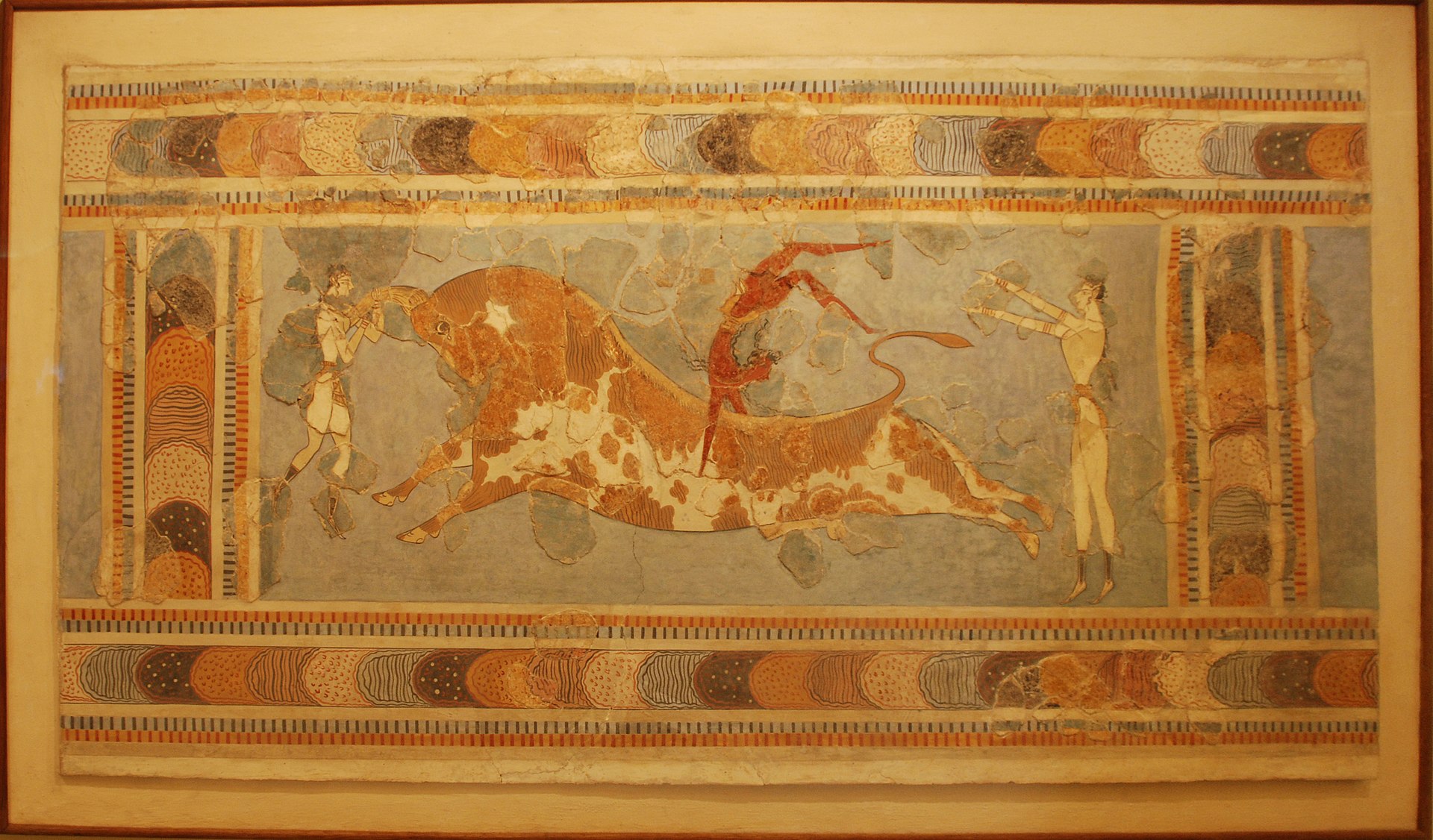 |
| Bull leaping fresco from a wall of the Palace at Knossos |
An article at Aeon Magazine apparently inspired by the Georgia Guidestones. Most of the article is crap, but this part is interesting:
Around 1200 BCE, a perfect storm of calamities – including earthquakes, famines, and a drought that lasted 150 years or more – set in motion the breakdown of the late Bronze Age kingdoms clustered around the eastern Mediterranean in an area that includes much of what is now Greece, Israel, Lebanon, Turkey and Syria. Archaeologists have unearthed persuasive evidence that part of the world experienced vibrant economic growth and cultural and technological advances for more than three centuries. These ancient societies – from the Mycenaeans and Minoans to the Hittites, Assyrians, Cypriots, Canaanites and Egyptians – were intimately interconnected, exchanging the services of physicians, musicians and artisans. Their well-developed trade routes transported goods and natural resources, especially commodities such as tin, essential for making bronze.
But a 2012 study revealed that surface temperatures of the Mediterranean Sea cooled rapidly during the years around 1200 BCE. Archeological records suggest this precipitated a severe drought that led to food shortages, mass migrations, and internal rebellions by poor and agrarian peasants. Ultimately, the major cities of these once-thriving Bronze Age societies were destroyed by invading armies likely fleeing their own drought-stricken homelands, prompting the loss of culture, languages and technologies. The result was the first Dark Ages – the late-Bronze Age crash – when these once-sophisticated and complex societies ceased to exist. It took centuries to recover and rebuild.
‘It was a globalised society for its time, and everyone was in contact with and dependent on everyone else,’ says Eric H Cline, an archeologist and anthropologist at George Washington University, and author of 1177 BC: The Year Civilization Collapsed (2014). ‘As a result you get a domino effect, when one culture goes down you get a cascade that affects everyone else. Egypt survived because they were better able to prepare but it was a Pyrrhic victory because all their trading partners were gone. The entire known world went down within a century.’
No comments:
Post a Comment